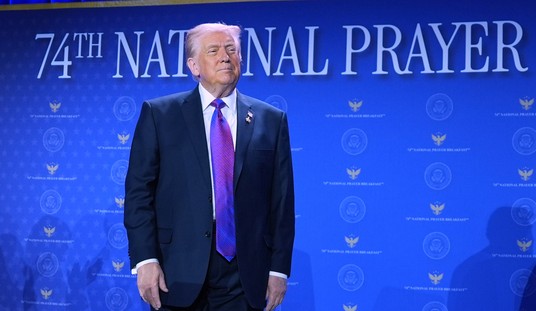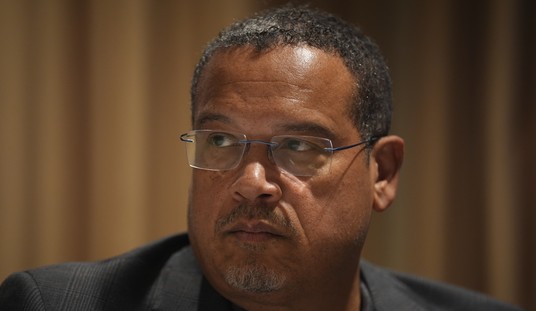In the summer of 2012, Barack Obama talked tough about “red lines” for Syria and the regime’s chemical weapons. In a rare press conference on August 20th, the President warned Bashar Assad that the US was prepared to act if Assad began to move his chemical weapons as a precursor to their use, emphasis mine:
I have, at this point, not ordered military engagement in the situation. But the point that you made about chemical and biological weapons is critical. That’s an issue that doesn’t just concern Syria; it concerns our close allies in the region, including Israel. It concerns us. We cannot have a situation where chemical or biological weapons are falling into the hands of the wrong people.
We have been very clear to the Assad regime, but also to other players on the ground, that a red line for us is we start seeing a whole bunch of chemical weapons moving around or being utilized. That would change my calculus. That would change my equation.
Almost four months later, the New York Times reports that the equation has changed, all right … but not in the direction Obama threatened. Instead, the “red line” has moved backwards, apparently to negate the threat of military action before the use of chemical weapons by Assad in the Syrian civil war:
When President Obama first warned Syria’s leader, President Bashar al-Assad, that even making moves toward using chemical weapons would cross a “red line” that might force the United States to drop its reluctance to intervene in the country’s civil war, Mr. Obama took an expansive view of where he drew that boundary.
“We cannot have a situation where chemical or biological weapons are falling into the hands of the wrong people,” he said at an Aug. 20 news conference. He added: “A red line for us is we start seeing a whole bunch of chemical weapons moving around or being utilized. That would change my calculus.”
But in the past week, amid intelligence reports that some precursor chemicals have been mixed for possible use as weapons, Mr. Obama’s “red line” appears to have shifted. His warning against “moving” weapons has disappeared from his public pronouncements, as well as those of Secretary of State Hillary Rodham Clinton. The new warning is that if Mr. Assad makes use of those weapons, presumably against his own people or his neighbors, he will face unspecified consequences.
When the White House was asked about this significant change, they claimed that there was no change. They offered a Clintonian explanation instead:
The White House says the president has not changed his position at all — it is all in the definition of the word “moving.”
Tommy Vietor, the spokesman for the National Security Council, said Thursday that “ ‘moving around’ means proliferation,” as in allowing extremist groups like Hezbollah, which has training camps near the weapons sites, to obtain the material.
The NYT’s sources admit that Obama overshot the mark in August, though, and had to retreat on his “red line”:
But for Mr. Obama, the change in wording reflects the difficult politics and logistics of acting pre-emptively against Mr. Assad. No American president has talked more about the need to prevent the use of weapons of mass destruction, and to lock down existing stockpiles. And no president has insisted more publicly that this is a time for the United States to exit wars in the Middle East, not enter new ones.
“We’re kind of boxed in,” an administration official said this week as intelligence agencies in the United States and its allies were trying to figure out the worrisome activity at one or two of the three dozen sites where Syria’s chemical weapons are stockpiled. “There’s an issue of presidential credibility here,” the official said. “But our options are quite limited.”
The chief limitation, American and Israeli officials say, is that chemical weapons sites cannot be safely bombed. “That could create the exact situation we are trying to avoid,” said one senior American military official, who like several others interviewed would speak only on the condition of anonymity.
The Israelis disagree, and have their own contingencies for taking out the chemical weapons before Hezbollah gets their hands on them. “We’re willing to do it,” an Israeli official told the NYT, “probably more willing than the Americans.”
That’s the problem with setting “red lines” publicly. If you are not willing to take action, your credibility at that point is destroyed. That’s why it is important to understand the situation and your own capabilities before setting those red lines, especially in public speeches. Essentially, it makes Obama look as though he was bluffing, either deliberately or through ignorance, and neither makes the US look especially strong now.
Fortunately, there may be better news on the diplomatic front. Russia, Assad’s key ally in the UN, may finally be throwing in the towel on his regime:
Russia’s top diplomat held a hurried private discussion Thursday with Secretary of State Hillary Rodham Clinton and the U.N. envoy for Syria about the 20-month-old civil war in the country that is Russia’s closest Middle East ally.
The meeting is a sign that Russia may be reconsidering support for Syrian President Bashar al-Assad, purely as a practical response to his weakening military position. Until now, Russia has rejected U.S. and other calls to abandon Assad and has appeared to think that he can defeat the rebels and keep his government intact.
Russia has been the chief international defender of Assad’s regime, a military and trade partner, and the main obstacle to tougher U.N. action to pressure him to end the war and step aside. No decisions emerged from Thursday’s three-way discussion, but a State Department official said the talks had been constructive. Lakhdar Brahimi, the U.N.-Arab League envoy to Syria, said the group was seeking a “creative” solution to the Syria crisis.
The meeting came amid fresh concerns that a desperate Assad might resort to using chemical weapons against the rebels or civilians. Clinton would not directly address reports that Assad’s army has prepared deadly sarin gas for delivery by missile.
The best creative solution might be an extraction of Assad and his clique from Damascus as soon as possible, and an international force to remain in place to allow for a peaceful transition to democracy. A sudden departure followed by a power vacuum will produce a Hezbollah-run state, just as the same kind of power vacuum created the situations we currently face in Libya and Egypt.








Join the conversation as a VIP Member